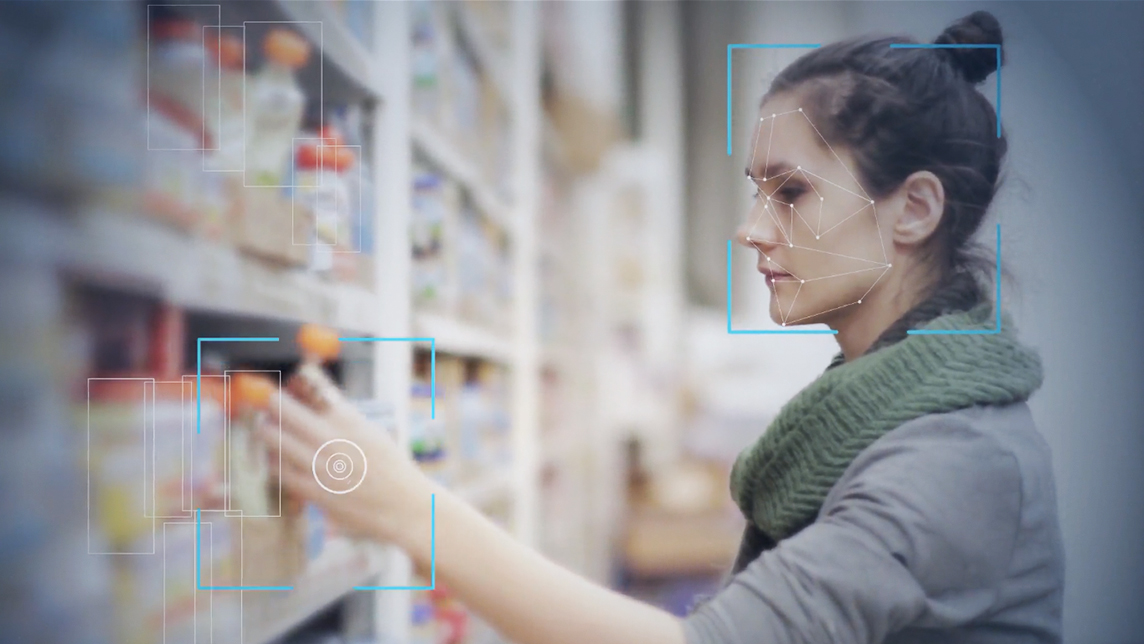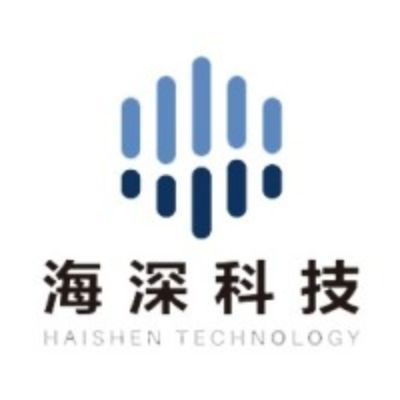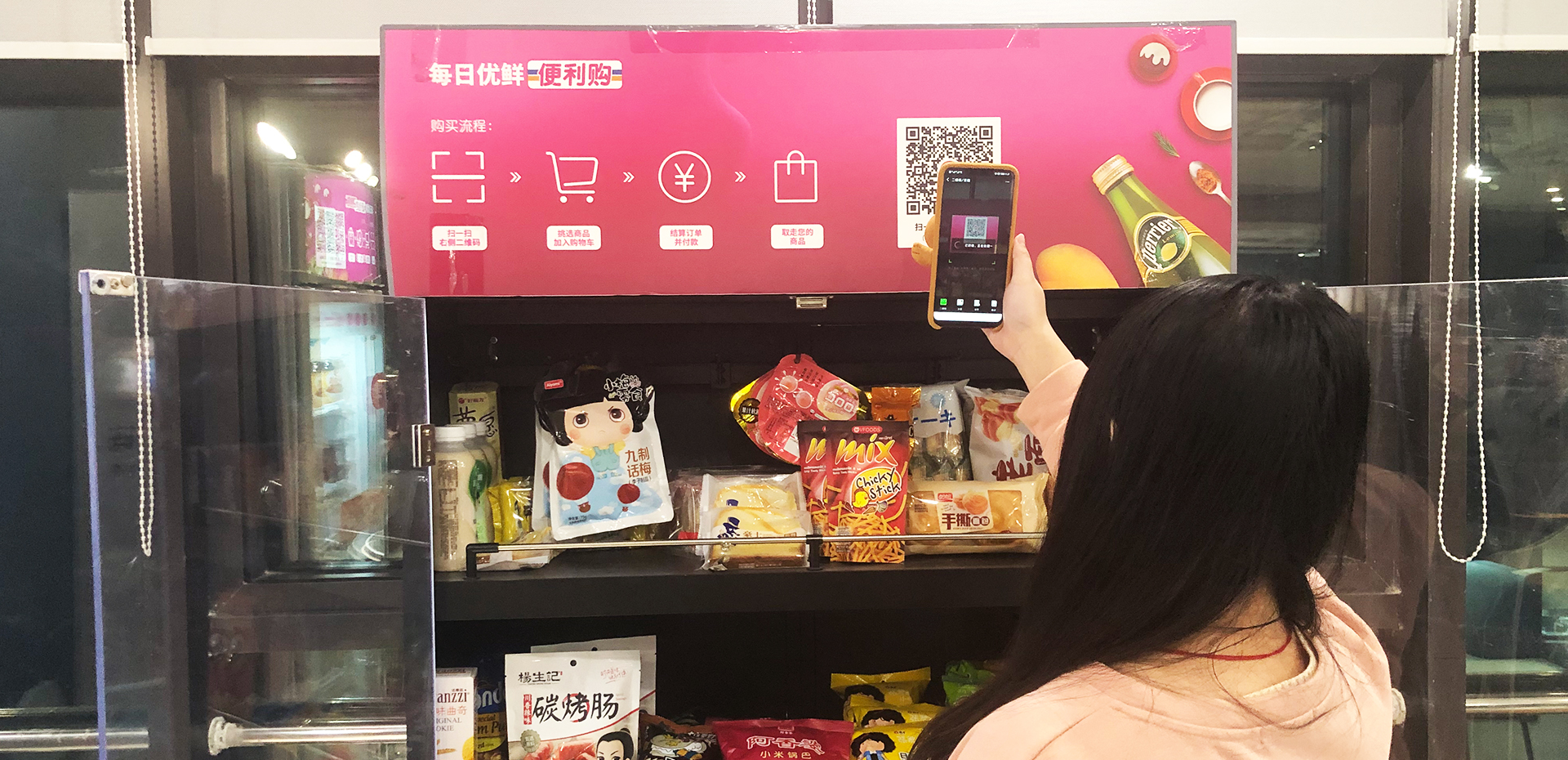The creator of superfast image-identification search engine, Haishen Tech is seeking more funding to become China's leading automated vending retailer.
In June 2019, the three-year old AI-tech raised RMB 40m Series A funding to increase the mass production of its smart G-BOX vending machines. It has partnered with Chinese appliance and electronics manufacturer Hisense to roll out G-BOX. It also jointly operates the unmanned retail cabinets with China's major shopping mall chain Bailian.
Market leader Aibee, which secured RMB 165m in 2018, is collaborating with shopping mall chain K11 to develop customized and other AI-powered solutions for high-end shopping malls in China. Aibee was started by the head of Baidu Research Lab to focus on computer vision applications for the retail industry. "It's inevitable that new retail trends will evolve from traditional offline retail into omni-channels with both online and offline models. AI companies are diving into their industry specifics to provide customized solutions, and consequently, build entry barriers within two to three years," said Aibee CEO Lin Yuanqing.
Tapping into this new retail trend, Haishen's milestone in 2019 is to distribute and operate the G-BOX cabinets in offline facilities. "We can only succeed if we manage to help brands and retail operators to reduce costs and increase revenue. It's a tight ecosystem, and our goal is to transit from a technology provider to become a new retail operator within the ecosystem," said Haishen co-founder and CEO Dai Jianbin.
Computer vision tech, 99.8% accuracy
Haishen was an early bird in computer vision technology. In 2016, its image-identification search engine GEEWOO was developed and used by e-commerce clients like JD.com, Red and Sogou Search. Customers could simply scan an item image, find the product and compare its prices from all over the web. The product search engine was pretty advanced at that time, with image processing and algorithms carried out in the cloud.
A JD.com test to "make a purchase through snapping a picture" resulted in a 50% above average accuracy rate. In 2017, Haishen churned out a series of smart G-BOX vending machines for retailers. The GEEWOO deep learning models were quickly improved. By February 2019, the second generation G-BOX AI 2.0 was able to identify a product in one second, with 99.8% accuracy.
The G-BOX has built-in dual-cameras that enable items to be identified from dual angles. With two cameras on each shelf, a wider coverage is realized, as well as providing a clear bird's-eye view without any problems of sight blocking. Shelves can also be more densely packed due to the lower minimum distance required between the cameras and the items, resulting in an increased use of cabinet space by 25%.
Computer vision technology is used to identify the goods and produce accurate inventory data to activate automatic stock replenishment via an integrated back-end system. Users have to scan a QR payment code to open the G-BOX cabinet door. Payment is automatically completed when items are taken out of the cabinet and the door is closed by the customer.
But smart cabinets can't solve all the problems of the unmanned retail sector. A hi-tech vending machine costs a few thousand dollars, compared to conventional shop shelves. Retailers also have to overcome the inherent problems of inefficient supply chain management and lack of operational resources.
Unmanned retail solutions
The sharing economy and new retail techs were amongst the top investment sectors during the past two years. But the potentially lucrative and highly scalable unmanned-shelf B2C model is also one of the most challenging retail sector worldwide. The new retail trend started in 2015 and rapidly spread within China until 2017, with total funding of US$400m invested in 40 companies founded within six months. However, only 10 companies were left afloat a year later. The rest became bankrupt or were merged/acquired.
The unmanned-shelf retail business initially became popular due to the low-cost entry barriers. But the new retailers had underestimated the potential costs of damaged and stolen goods, that accounted for 50–80% of the daily losses incurred in some locations. Vending cabinets needed more robust protection to become profitable business models.
Haishen may have found the answer. Besides offering SaaS solutions, the company is also selling its G-BOX cabinets directly to traditional/offline stores, shopping malls and public facilities. Haishen is also an AI-specialist, with a team experienced in cloud computing, ML and deep learning. The company has also recruited an algorithm team from top universities like Columbia, Carnegie Mellon and the University of California, Berkeley.
It's not uncommon for AI companies to delve deeper into niche markets and strengthen industry-specific collaborations. "Computer vision has proven to be important in many offline scenarios. This market is huge and segmented. Each industry like manufacturing, textiles and winery for example, all needs customized and unique solutions," said Puhua Capital's Jiang Chun.













